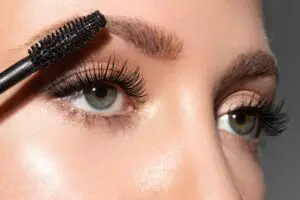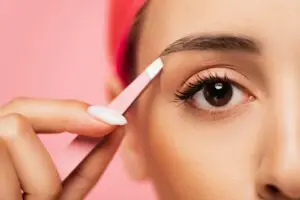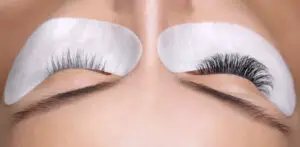When it comes to natural beauty remedies, coconut oil has long been praised for its various benefits, from moisturising to soothing inflammation. Amidst these positive properties, there are a few lingering questions about whether coconut oil can darken the skin.
This topic has sparked much debate among skincare enthusiasts and experts alike, making it all the more important to explore the information available on this issue.
In order to provide a comprehensive understanding, we shall delve into both the benefits and possible side effects of using coconut oil on the skin. By examining the scientific data and expert opinions available, we aim to offer a balanced, well-researched perspective that will allow you to make an informed decision about incorporating coconut oil into your skincare routine.
Throughout this article, we will assess the claims surrounding coconut oil’s potential to darken the skin, taking into account its various properties and how they can affect different skin types. By considering multiple factors and reliable sources of information, our objective is to leave you better equipped to decide if coconut oil is indeed a suitable option for your skincare needs.
Does Coconut Oil Darken Skin
Skin Tone and Coconut Oil
Coconut oil has been widely used for its diverse set of benefits and is known to be an all-natural moisturiser that can hydrate skin and hair effectively. However, when it comes to its effects on skin tone, it’s important to know if applying coconut oil can darken skin.
While some people may experience temporary changes in their skin tone due to using coconut oil, this typically occurs because of the interaction between fatty acids and sunlight, generating Vitamin D. This increased production of Vitamin D can then darken the skin.
Melanin Production
Melanin is the pigment responsible for the colour of our skin, hair, and eyes. The production of melanin can be influenced by various factors, including the use of certain skincare products and exposure to sunlight.
Coconut oil, being rich in fatty acids, can interact with sunlight to create Vitamin D, which may lead to an increase in melanin production resulting in slightly darkened skin. However, it is worth noting that this effect is usually temporary and does not cause any significant or long-lasting changes to an individual’s skin tone.
In conclusion, coconut oil does not generally darken skin, and any temporary effects are likely due to the interaction between fatty acids and sunlight. Overall, coconut oil remains a popular choice for its numerous skincare benefits such as its ability to moisturise dry skin and even aid in eczema relief.
Benefits of Coconut Oil for Skin
Coconut oil has been popularly used in skincare routines for various reasons. This versatile oil offers numerous benefits for the skin, as it possesses an array of properties that support and nourish the skin.
Moisturising Properties
One of the primary benefits of coconut oil is its ability to hydrate and moisturise the skin. It acts as an effective emollient, which means it can soften and soothe the skin by forming a protective layer that locks in moisture. This property helps repair cracks in the outer layers of the skin more efficiently.
Coconut oil is particularly helpful for those with dry skin and can provide relief from symptoms related to conditions like eczema and dermatitis.
Antioxidant Benefits
Apart from its moisturising capabilities, coconut oil also exhibits antioxidant properties. These properties contribute to combating skin infections and aiding in the healing of damaged skin.
The antioxidants in coconut oil help soothe inflammation, reducing skin irritation and redness. In addition, the presence of fatty acids, such as lauric acid, gives coconut oil antimicrobial properties. This may help in the prevention and treatment of acne, fungal infections, and other skin ailments.
Furthermore, this versatile oil contributes to fading dark spots and promoting an even skin tone, reducing the appearance of wrinkles and softening the skin.
Possible Side Effects and Risks
Acne Breakouts
Coconut oil is known for its moisturising properties and is sometimes used to improve skin health. However, some individuals may experience acne breakouts when using coconut oil topically. This is due to the oil being comedogenic, meaning it can clog pores and potentially contribute to acne formation.
If you have acne-prone or oily skin, it might be best to avoid using coconut oil on your face and opt for a non-comedogenic alternative instead.
Allergic Reactions
While coconut oil is generally considered safe for most people, there is a risk of allergic reactions in some individuals. Those who are allergic to coconuts may develop skin irritation, itching, and redness when applying the oil topically.
To prevent unwanted reactions, it is recommended to perform a patch test by applying a small amount of coconut oil to a discreet area of skin and wait for 24 hours to ensure no irritation occurs. If you experience any adverse reactions after using coconut oil on your skin, discontinue its use and consult a healthcare professional.
Safe Usage Recommendations
Application Frequency
Coconut oil can be beneficial for your skin, but it’s important to use it in moderation. Using it excessively could lead to clogged pores and breakouts, especially on the face, chest, upper back, and shoulders, which have the most oil glands. Experts generally advise against using coconut oil as a sunscreen, as its sun protection properties are not well-established.
It’s best to use coconut oil sparingly, perhaps once or twice a week, depending on your skin type. If you notice any adverse reactions, discontinue use immediately and consult a dermatologist.
Patch Tests
Before applying coconut oil to larger areas of your skin, it’s essential to perform a patch test. To do this, apply a small amount of coconut oil on a discreet area of your skin (such as the inside of your forearm) and wait for 24 hours. If no irritation or allergic reactions occur, you can proceed with using the oil.
By following these safe usage recommendations, you can maximise the potential benefits of coconut oil for your skin while minimising any negative effects.
Alternative Oils for Skin Care
Argan Oil
Argan oil is a popular choice for skin care due to its numerous benefits. Rich in vitamin E, essential fatty acids, and antioxidants, it provides deep hydration and nourishment to the skin. Moreover, argan oil is known to help with skin elasticity and can potentially reduce the appearance of fine lines and wrinkles. As a non-greasy and easily absorbed oil, it can be applied directly onto the skin or mixed with other skin care products for an added boost of moisture.
Jojoba Oil
Jojoba oil is another excellent option for skin care. With its anti-inflammatory, antioxidant, and wound healing properties, it is an ideal ingredient for those experiencing dry or sensitive skin. Jojoba oil closely resembles the skin’s natural sebum, making it easily absorbed and less likely to clog pores.
This versatile oil also has the ability to improve the absorption of topically applied medications, making it a useful addition to many skin care routines.
In conclusion, both argan and jojoba oils offer incredible benefits for skin care. While coconut oil has its advantages, these two alternatives provide a variety of qualities that cater to different skin types and concerns.
Experimenting with these oils and incorporating them into your skin care routine can lead to noticeable improvements in the overall health and appearance of your skin.

I’m Jennifer a beauty and wellness expert. I believe in promoting a sustainable and healthy lifestyle from within. Helping people feel good is my passion; whether it’s teaching yoga or offering skincare advice.







